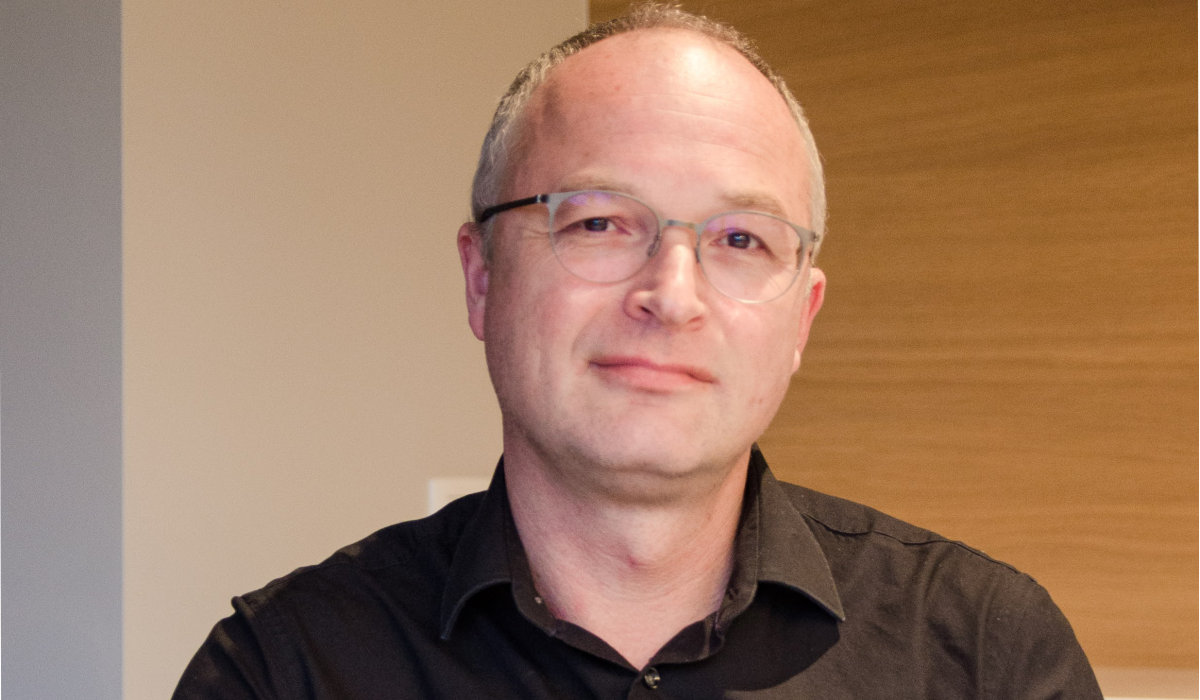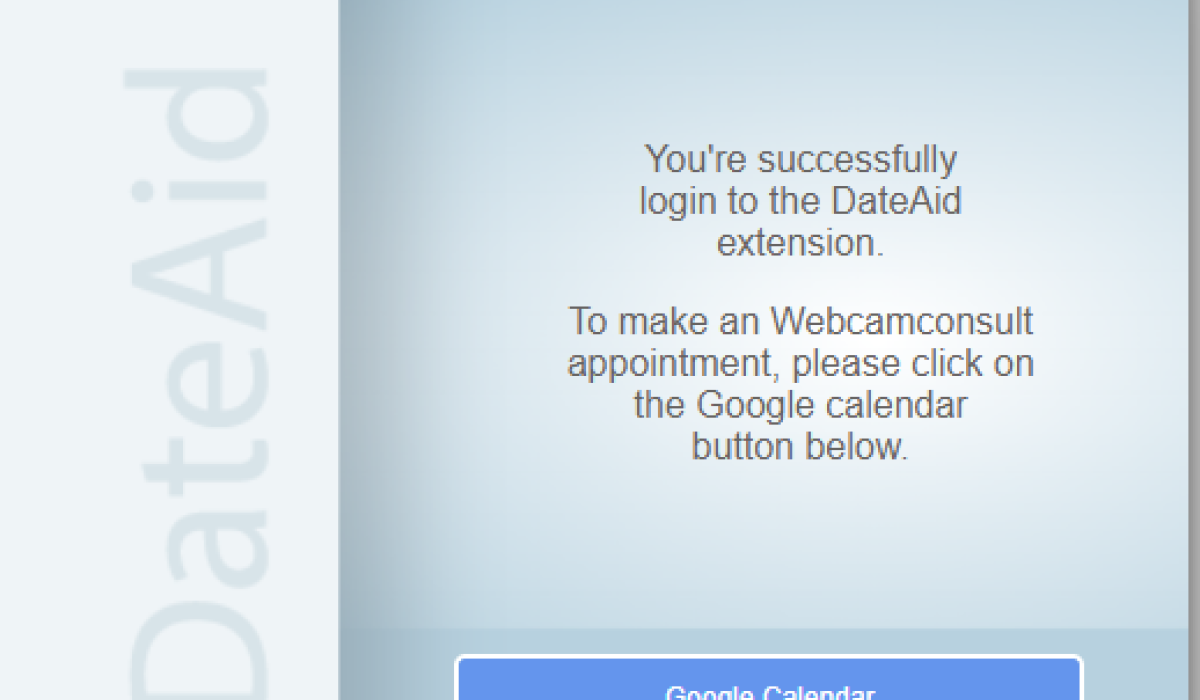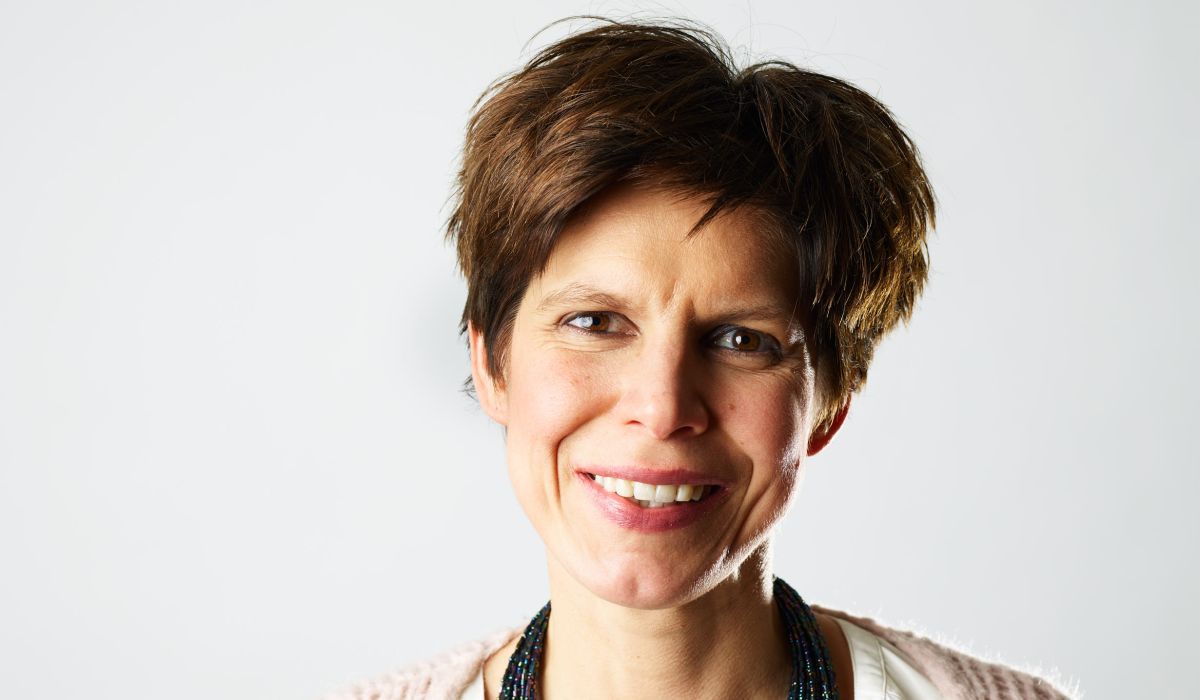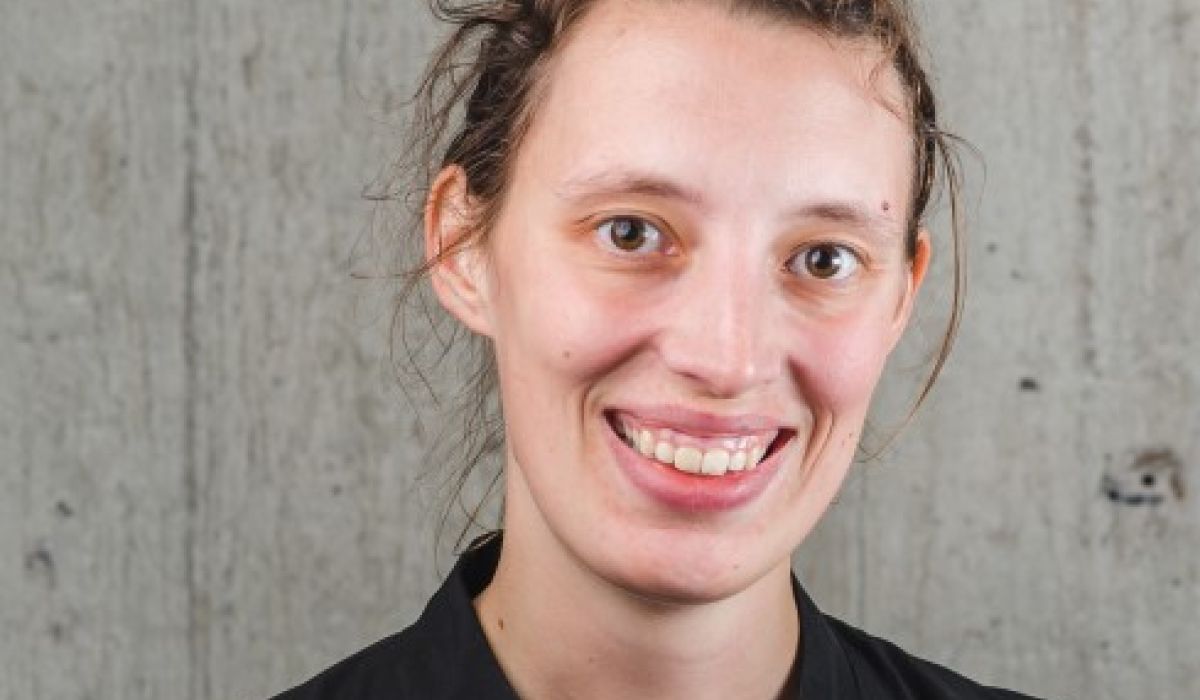
Screen calls in diabetes care
Bart Degryse, Innovation Manager at Wit-Gele Kruis West Flanders on implementation of screen care
Not only in the Netherlands has digital care via Webcamconsult increased enormously in the past year. By 2020, the number of webcam consultations conducted abroad had already risen to 19% of the total number of calls. In 2021, this further grew to 25%.
Video consultation is now an integral part of the healthcare process
Bart Degryse, Innovation Manager at Wit-Gele Kruis West-Flanders on implementation of screen care
>
Not only in the Netherlands has digital care via Webcam consultation increased dramatically in the past year. By 2020, the number of webcam consultations conducted abroad had already risen to 19% of the total number of calls. In 2021, this further grew to 25%.
>
2020/2021 also marked a turning point in digital care for home nursing organisation Wit-Gele Kruis from Belgium. With around 1,000 employees by province and 1,450 colleagues in West Flanders, it is one of the country's largest home care organisations.
Bart Degryse, Innovation Manager at Wit-Gele Kruis of West Flanders tells us about the digital transition over the past year. How does implementation of screen care actually go in practice.
>
Degryse: "Digital care is slightly behind in Belgium compared to the Netherlands. Partly due to the reimbursement system, which is different from yours.
At Wit-Gele Kruis we have in-house specialisations in various fields. For example, wound care, ergonomics, geriatrics, medication and diabetes care. Last year, we accelerated the implementation of screen care for our diabetes clients. We were forced to do so because corona made our standard care impossible.
From Arteveldehogeschool, Wit-Gele Kruis received help in implementing screen-based care,
.
Degryse: "From Arteveldehogeschool in Ghent, we received support in implementing screen care. We were guided by researchers who were working on a trajectory; how ambulatory care can be arranged better.
This was not only about image calling, but also about technology, technical conditions and privacy. It also looked at support among users and practitioners.
For example, to go a little deeper into privacy, there was, for example, chat messaging with clients. And that is not allowed in view of the GDPR.
Corona, by the way, was not the reason to start with video consultations, we were already working on this on a smaller scale. However, it did allow us to scale up quickly and continue to provide care to our diabetes clients."
Degryse says that specialist nurses are trained from the various domains. These are called 'reference nurses' or 'educators' and these serve as questioners for other nurses. Experts deal with... new techniques, digital care and broadening knowledge within the field. Everything with the aim of sharing this knowledge with colleagues.
In several steps, screen care was rolled out within the White Yellow Cross.
Degryse: "We started drawing up a list of functional requirements from the users' point of view. Here, for example, we looked at the possibilities of requesting user reports as well as a payment module. This had to be applicable not only to the diabetes domain, but also to other domains.
By the way, we chose to start with diabetes clients because here it was also possible to be reimbursed for the video consultation. Our clients are entitled to 5 treatments per calendar year, and this includes screen care. Currently, the government is investigating how teleconsultations can also be included in the reimbursement system after the Corona pandemic."
"The next step was to look at how to communicate with people around screen care. For this, we also talked to other parties to ask about their experiences in this area. We then looked at the privacy side of digital care. Are cooperating partners, such as Webcamconsult, willing to sign something? After all, they have to guarantee that everything is GDPR compliant. Fortunately, this is the case.
We also did a financial analysis. In retrospect, it was a good decision to invest in image calling, especially given the developments with Covid-19."
There are 23 diabetes educators in West Flanders. Four of them are involved in setting up and rolling out screen care at Wit-Gele Kruis. The so-called 'image call ambassadors'. Between them, they started testing with each other to get to know all the details.
Degryse: "After the four educators had completed their learning process, we started communicating internally. What exactly is screen care and what do you use it for? We don't deploy it to replace home visits, but use it as supplementary remote care. We are not going to make image calls to a client we have never visited at home. In addition, they have to be willing to use Webcamconsult and have the technical resources at home, such as suitable internet and a laptop, tablet or mobile.
Our evaluation report, still made for Covid-19, came out positive about screen care. We had already decided to roll out phase two, with clients. Corona accelerated everything. There were questions from the field about follow-up because a lot of the physical visits came to a standstill. Eight additional educators were trained, so we now have a total of 12. We also added a dietician to the team."
According to Bart Degryse, video consultations are here to stay at the home nursing organisation. In doing so, he does expect a reduction in the number of consultations once society returns to normal. But he also expects corona to be among us for several more years. The Wit-Gele Kruis Limburg domain has also recently started using video calls and is investigating the possibility of offering this in the maternity care domain. Here, the innovation manager expects less trepidation about technical issues because of the younger target group of clients, who are generally more familiar with video calls than the diabetes target group, which is older on average. He also indicates that the role of educators makes a valuable contribution to successful implantation.
Degryse: "The right support for nurses is really necessary. You have to arm them with some technical knowledge, but the fact is that not everyone has the same amount of this. That's why we put so much effort into support from our educators, and it works.
Here, a number of Care Technology students are setting up communication around screen care. Think of explanation videos and tutorials for example."
"Next step now is to look at how to integrate with our back office system. It is a protected Citrix environment, but it can be done. When we scale up further, the integration should be optimal.
We see many opportunities for screen care in the future. The important thing is to start well prepared. What do you want to achieve with it and make sure you have a business case first. There must be support among employees to get started. But once these steps have been taken, it offers enormous opportunities. We experienced this in practice last year."
From VIVES University of Applied Sciences, the White Yellow Cross is supported in the field of communication tools. From the Bachelor course 'Healthcare Technology', Jutta De Ganck, Tim De Neve and Dimitri Van Britsom are involved.
Tim, "We are currently working on a poster, flyer and video. In these, we explain how communication between client and practitioner is best achieved through a webcam consultation.
We are testing the various resources with a target group of seniors and making adjustments where necessary.
White Yellow Cross already had a document with about 20 points, but the target group did not read it properly. Our project focuses on making communication more attractive. More use of visuals, such as pictograms, photos, video and infographics."
Dimitri, "Especially with the older generation, screen care needs attention. The client does need to be able to participate in the story. I see that my classmates and friends all have no problem with it and are open to it."
Jutta, "What we do see back is that screen care is fairly easy to implement, but many doctors don't know that and think it's complex. But the reality is, is that the workload in healthcare is high and digitisation can help with this."
Bert van Gerwen, Webcamconsult on scaling up digital care
Bert van Gerwen, Webcamconsult, "Large healthcare organisations have included in their goals that 25-50% of consultations will go digital in the future. And everywhere at the moment you see that there is an upscaling in terms of digital care. We ourselves are also seeing this. Many millions of minutes a year are spent on screen-based care via Webcamconsult.
We are still in the early majority in terms of target group and still have a way to go towards the late majority. But the boost that healthcare needed to go more digital is well underway in 2020, and in 2021 we see huge scale-up incentives from the government. Hybrid care will increasingly become an accepted phenomenon. And desperately needed too because the cost of care is rising more and more and there is also a backlog to clear.
I am in any case glad that we have the capabilities in-house to support healthcare organisations in this."
 English
English  Nederlands
Nederlands  Français
Français  Deutsch
Deutsch  Italiano
Italiano  Polski
Polski  Português
Português  Español
Español  Svenska
Svenska 


